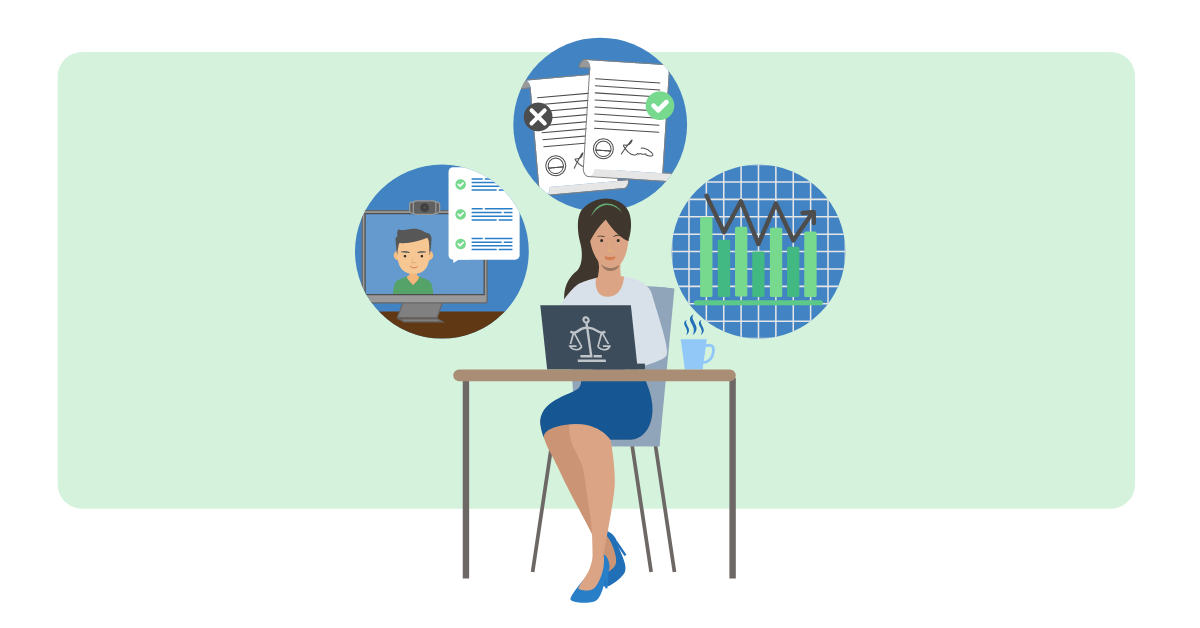How to Navigate COVID-19 Small Business Legal Issues

Contracts, Federal Relief, & Employment
For small businesses, staying afloat has been the ultimate struggle amidst lockdowns, quarantine, and consumers losing income to spend. Not to mention, the myriad of legal issues that small business owners have had to deal with for the first time. Let’s discuss some of those issues here and how to navigate them in the midst of a global pandemic.
Contracts
The lockdowns have led to cancellations everywhere. Whether it was a wedding, conference, anything else, the shutdowns have had a rippling effect. As a result of the lockdowns, contractual duties have been unable to be fulfilled. Many businesses have been relying on force majeure protections in their contracts. Force majeure is a contractual defense that allows a party to avoid liability for its inability to perform contractual obligations due to certain events outside its control. This pandemic has certainly been outside of anyone’s control, and even now, we have no idea where it could go.
So is force majeure applicable here? Many are unsure. It must be reviewed on a case-by-case basis, and some contracts specify that only certain qualifying events fit the brief. If you are unsure, reading over your contract or consulting an attorney can help.
Federal relief
Government support for small businesses during this time is an ever-changing situation. A few months after the pandemic first hit, the Coronavirus Aid, Relief and Economic Security (CARES) Act, and the Paycheck Protection Program (PPP) were passed.
The CARES Act provided an economic stimulus to businesses and employees. Businesses with under 500 employees, sole proprietors, and independent contractors were eligible for paycheck protection loans to cover payroll costs, healthcare, rent, utilities, and other allowed expenses. The goal was to incentivize employers to keep or rehire workers and use the loan amounts to pay payroll and other expenses. Many businesses were able to apply for this back in the spring. If companies did not lay off employees during this period, the loans or some portion are forgiven.
The pandemic hit full force with lockdowns beginning in March, so the CARES Act applied retroactively to February 15, 2020. Employers could rehire any laid-off employees since that time and take advantage of the incentives offered.
The CARES Act also had an employee retention tax credit used by businesses that do not receive the paycheck protection loans and meet additional criteria. There has not been more aid by the federal government since then.
Employment
Employment is a huge issue for small businesses trying to stay afloat. Since the pandemic hit, businesses were either forced to shut down or operate at limited capacity. Many businesses think outside of the box and figure out ways to stay open under limited, COVID safe guidelines. Keeping your employees, as well as keeping them safe, is a priority to navigate. The unemployment rate is at an all-time high, and a mixture of layoffs and furloughs have been happening to businesses across the board.
Whether or not you can keep your employees on, especially after the PPP runs out, depends on the business itself. Navigating remote work and having personal protective equipment for employees who need to come into the office is new. Every business is doing something different to adapt. Keeping up on the laws related to staying open and what to do when you cannot or need to downsize is crucial for the immediate future.
Insurance
Whether or not business interruption insurance protects your business is a major question facing small businesses. Can you file an insurance claim? The details of insurance policies vary. If relief exists, it is typically found in General Commercial Liability, Professional Liability, and Business Interruption Policies. Much like contracts, anything that your business can file for or is entitled to will depend on how the insurance policies are written.
Get expert, small business legal guidance today
The legal issues facing small businesses during this time are new, complex, and ever-changing.
Speaking with an attorney to figure out your options and make sure you’re in compliance with new regulations is an option, and LegalQ can help.
LegalQ is an app that makes it easy to connect with an attorney to get answers, make a plan, and move forward with confidence. A 15 or 30-minute consultation with an attorney in your state will give you a place to jumpstart and figure out your next business move. Learn more about the LegalQ app and get connected today.
Use LegalQ to talk to an attorney. Download the FREE mobile app now >>>

By: Joanna Smykowski
Sources
The CARES Act Works for All Americans, U.S. Department of Treasury. https://home.treasury.gov/policy-issues/cares
Paycheck Protection Program, U.S. Small Business Administration. https://www.sba.gov/funding-programs/loans/coronavirus-relief-options/paycheck-protection-program



